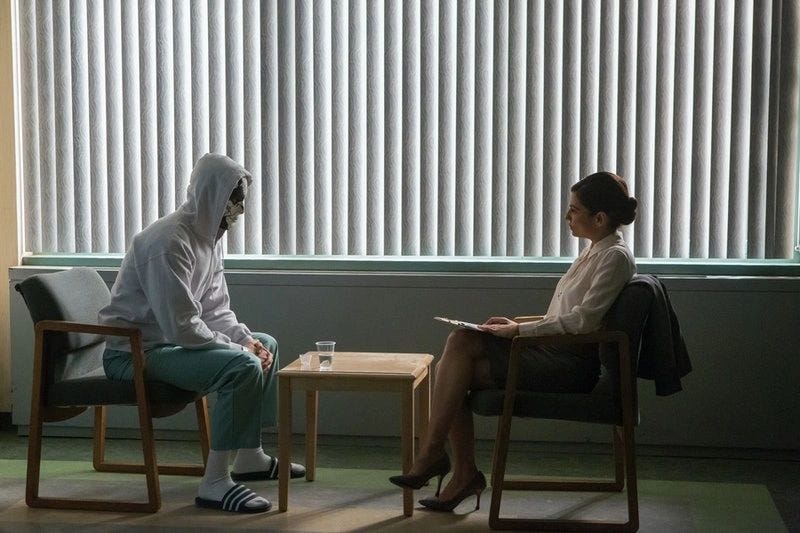I have a particular interest in feminine aggression and how women’s ways of destruction differ from the masculine baseline of beatings, gunfights, and demolition of infrastructure. The Netflix Marvel shows (now on Disney+) have been universally strong in depicting women as realistic, complicated, and aggressive in uniquely feminine ways.
Heroines like super-powered Jessica Jones and driven Karen Page exemplify these complex feminine qualities, but so too do the female villains — especially the ones who don’t realize they’re causing harm.
Daredevil season 3 and The Punisher season 2 have an important connection that struck me: They both feature a female psychologist whose overabundance of care for her patient results in great harm being wrought on the populace. I don’t think it’s a coincidence there is a fair bit of overlap in the writers for these two shows (all 12 writers for Punisher also were part of the team for Daredevil).
Facilitating Male Villainy
The psychiatrist in Daredevil is …



